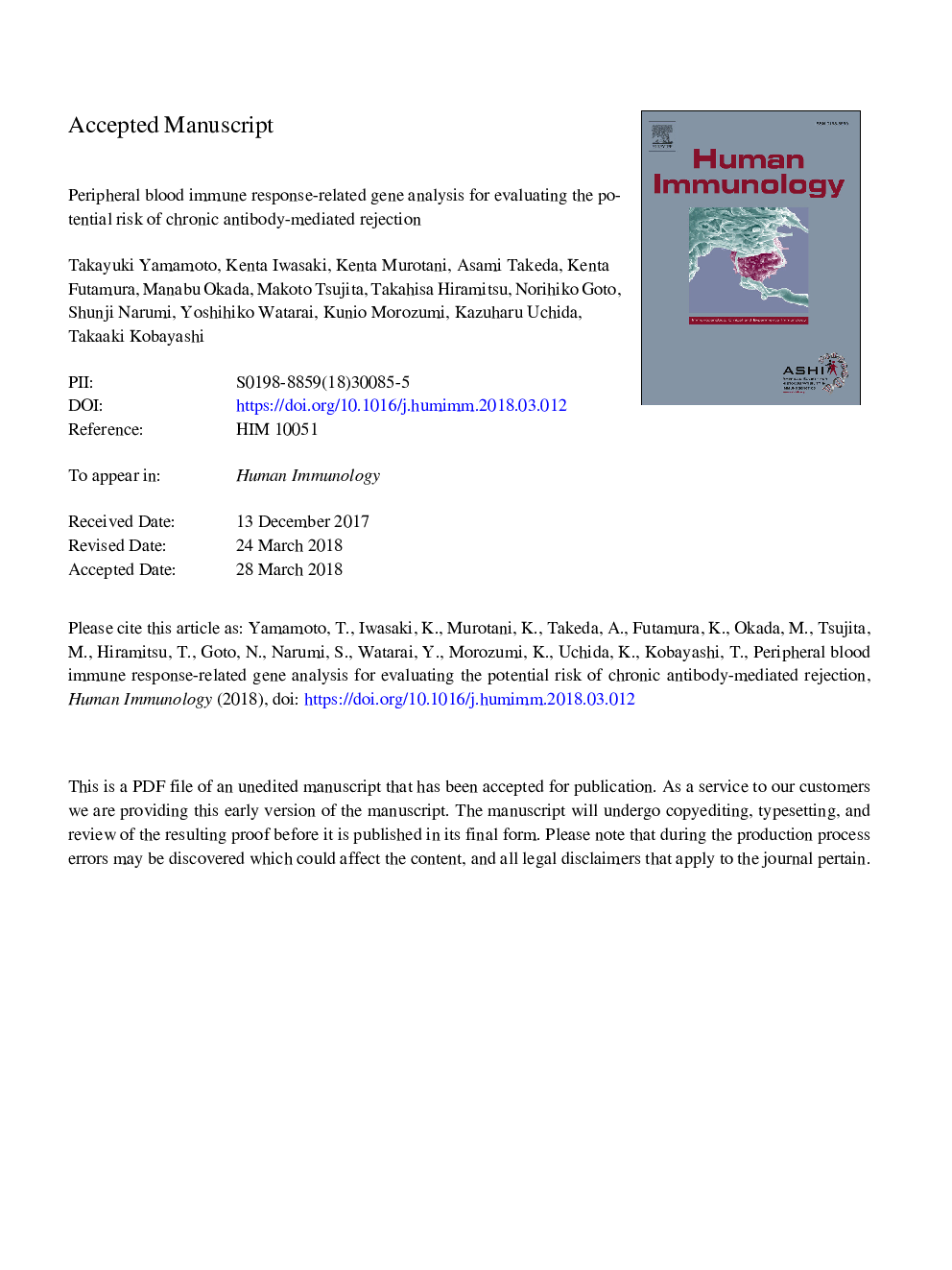| Article ID | Journal | Published Year | Pages | File Type |
|---|---|---|---|---|
| 8737581 | Human Immunology | 2018 | 27 Pages |
Abstract
Noninvasive methods for the early diagnosis of chronic antibody-mediated rejection (cAMR) are desired for patients with de novo (dn) donor-specific HLA antibody (DSA). This study aimed to elucidate the clinical relevance of immune-related gene expression in peripheral blood of kidney transplant recipients. The expression levels of fourteen key molecules (Foxp3, CTLA-4, CCR7, TGF-β, IGLL-1, IL-10, ITCH, CBLB, Bcl-6, CXCR5, granzyme B, CIITA, Baff, TOAG-1/TCAIM) related to regulatory/cytotoxic function of immune cells were compared in 93 patients, which were divided into Groups A (clinical cAMR with dn DSA, nâ¯=â¯16), B (subclinical cAMR with dn DSA, nâ¯=â¯17), C (negative cAMR with dn DSA, nâ¯=â¯21) and D (stable function without dn DSA, nâ¯=â¯39). CIITA mRNA expression levels in groups B and C were significantly lower than those in group D (pâ¯<â¯0.01). Moreover, the CTLA-4 mRNA expression in group A was significantly higher than that in groups B and C (pâ¯<â¯0.01). ROC curve analysis suggested that CIITA (AUCâ¯=â¯0.902) and CTLA-4 (AUCâ¯=â¯0.785) may serve as valuable biomarkers of the stage of dn DSA production and clinical cAMR, respectively. In addition to dn DSA screening, monitoring of CIITA and CTLA-4 in peripheral blood could offer useful information on the time course of the development of cAMR.
Related Topics
Life Sciences
Immunology and Microbiology
Immunology
Authors
Takayuki Yamamoto, Kenta Iwasaki, Kenta Murotani, Asami Takeda, Kenta Futamura, Manabu Okada, Makoto Tsujita, Takahisa Hiramitsu, Norihiko Goto, Shunji Narumi, Yoshihiko Watarai, Kunio Morozumi, Kazuharu Uchida, Takaaki Kobayashi,
